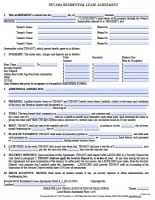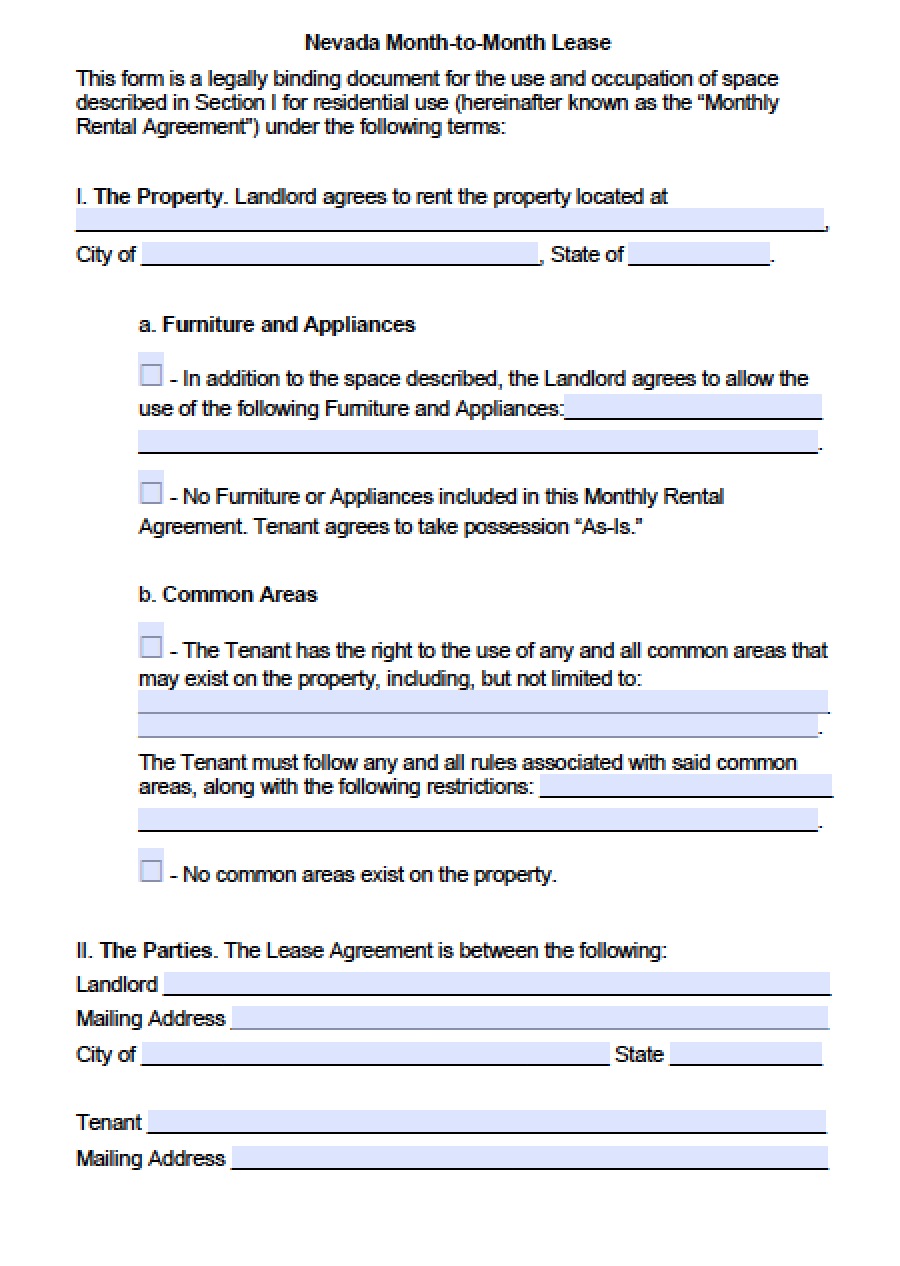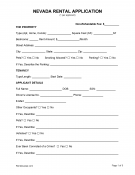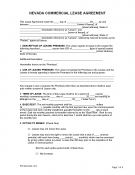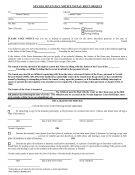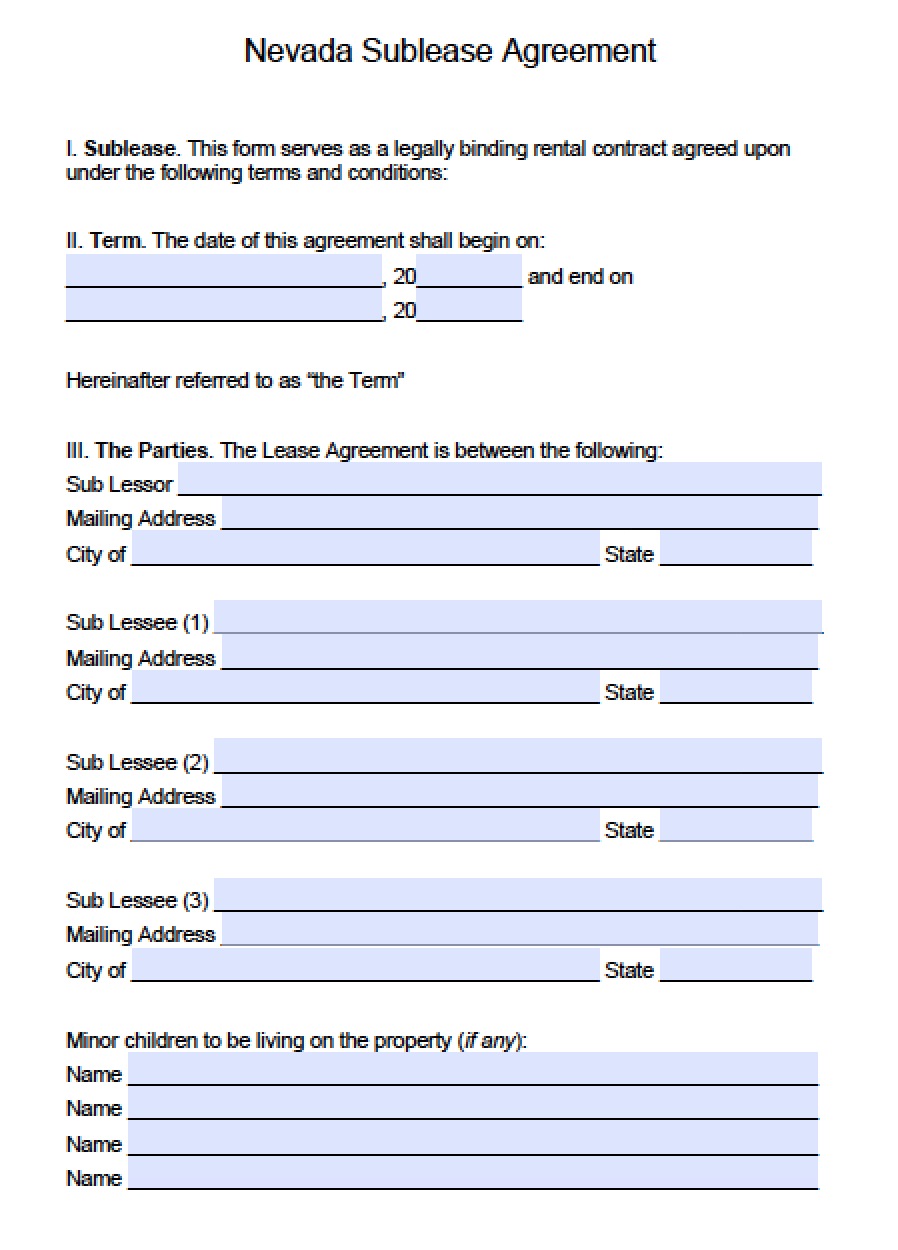The Nevada rental agreements are legal forms that allow a property owner or manager to legally lease space that may be occupied in exchange payment. The agreement will indicate the tenant’s rights and responsibilities as well as how much money must be paid and when it is due (usually paid once per month on the first (1st) day). If payment is not made to the landlord immediately, a notice may be sent to the tenant stating the option to quit (move out) or pay all that is due within five (5) days.
Nevada Rental Lease Agreement Templates | PDF
Nevada Lease Agreements
The Nevada standard residential lease agreement is designated for landlords and tenants seeking to make a legally binding contract that sets the conditions for occupying a property in return for a monthly payment. What sets the residential lease apart from other types is that it is for a fixed term (usually one (1) year). Before signing any type of agreement, the landlord will usually ask for the tenant to authorize a rental application to make sure that they are financially…
The Nevada month-to-month rental agreement is an arrangement between a landlord and tenant that permits a tenant to occupy residential space without a fixed end date. The agreement continues perpetually until either party terminates the agreement by giving the other at least thirty (30) days’ written notice. If the landlord would like to change any part of the agreement, forty-five (45) days’ notice is necessary. All landlords are encouraged to screen applicants before entering into an agreement by having them…
The Nevada rental application is used by landlords to lookup a tenant’s credentials and information in order to verify that they are financially responsible and able to handle a leasing contract. The applicant may be subject to a non-refundable fee to process the document regardless of whether they are approved or not. If the tenant is not approved, the rental space will remain available for lease and the rejected applicant will have to look elsewhere. If the tenant is approved,…
A Nevada commercial lease agreement allows a landlord and tenant to make an arrangement where the tenant occupies a rental space for commercial purposes. In exchange using the leased property, the tenant will make periodic payments to the landlord which will typically be paid at the start of each month. All potential tenants should be screened through a rental application to verify whether they can afford the necessary payments. Also, the landlord may confirm the status of an entity by…
The Nevada seven (7) day notice to quit for nonpayment of rent is served to a lessee on behalf of the landlord or their representative. The notice will inform the lessee that they have seven (7) days to either pay the amount overdue or face vacating the premises. If the tenant chooses to leave the property, they will still be financially liable for the amount due to the landlord. Tenants that fail to either leave the premises or pay rent…
The Nevada sublease agreement is a form that lets a leaseholder rent their leased space to another person. The new tenant, or sublessee, must follow the terms and conditions of the sublease. If they do not, the sublessor will be responsible for any potential eviction or collection matters. The sublessor will remain required to pay the amount stated in the master lease regardless of how much rent the sublessee is paying. Due to the sublessor possessing all responsibility for the…
STATE DISCLOSURES
All Deposits and Fees (NRS 118A.200(e)) – All deposits/fees must be stated in the agreement along with their purpose and requirement.
Foreclosure (NRS 118A.275) – If the landlord is undergoing a foreclosure proceeding, it must be stated to the tenant (doesn't have to be in writing).
Lead-Based Paint – Only required to be given to the tenant if the housing was constructed prior to 1978.
Move-in Checklist (NRS 118A.200(k)) – Must be used if a Security Deposit was collected at the start of the term.
Nuisance/Violation Penalty (NRS 118A.200(3)(m)) – Tenants must be informed of the reporting procedures for nuisances and violations (building, safety, health code, regulations).
Right to Raise Flag (NRS 118A.200(3)(n)) – The landlord must disclose information pertaining to the tenant's right to display the U.S. flag on the premises.
SECURITY DEPOSITS
Maximum (NRS 118A.242(1)) – Three (3) months' rent is the limit a landlord may charge a tenant.
Returning (NRS 118A.242(4)) – Landlord must return the deposit within thirty (30) days from the tenant moving out.
LANDLORD'S ACCESS/ENTRY
The property owner/manager must provide at least twenty-four (24) hours notice before entering the tenant's leased space (NRS 118A.330)

